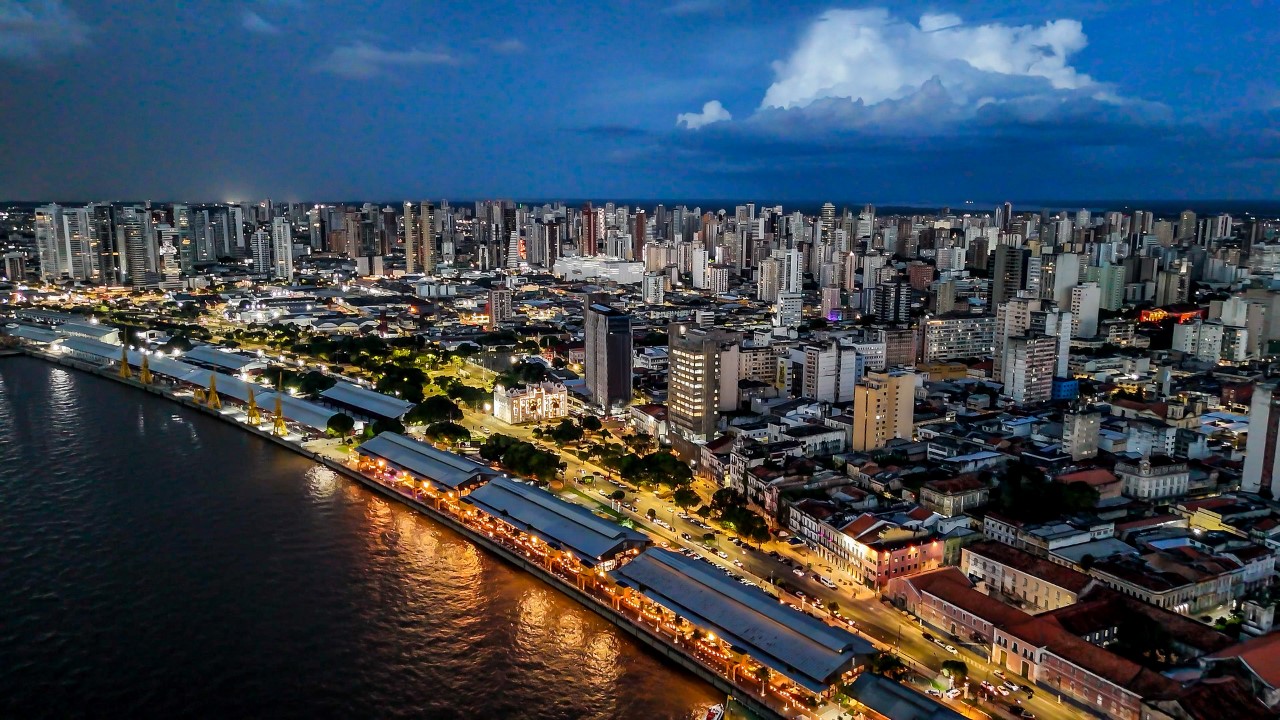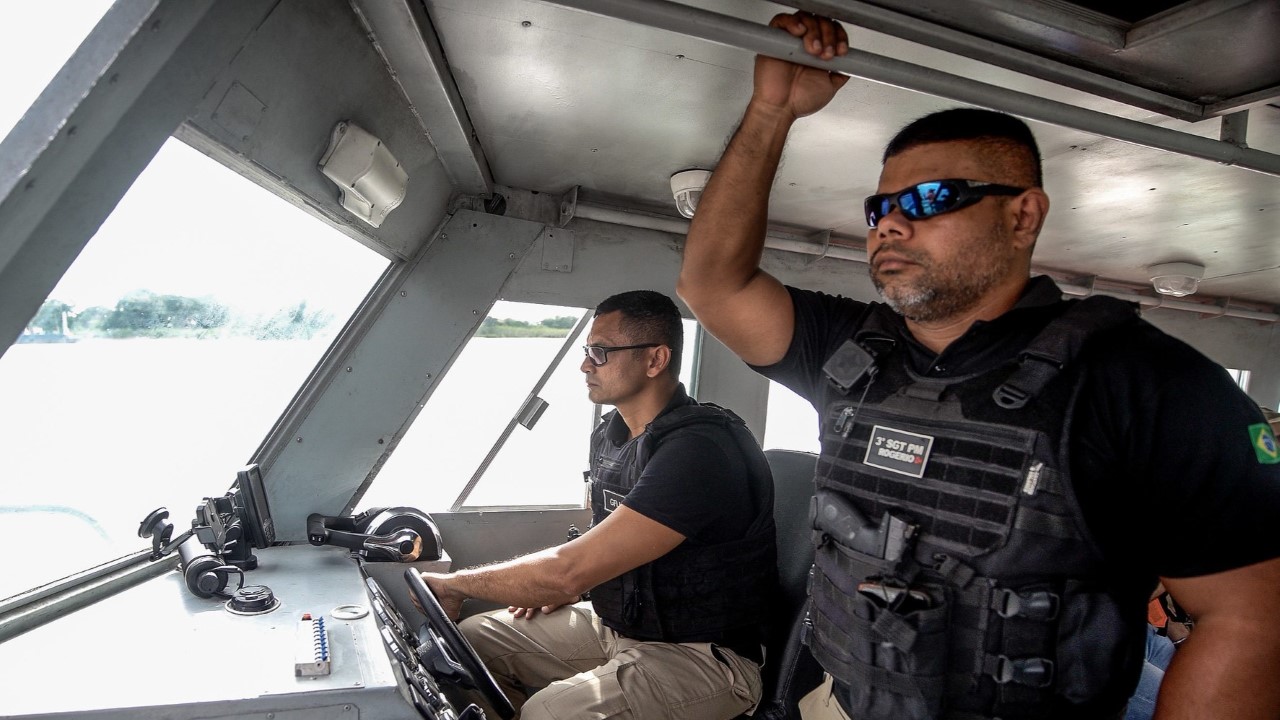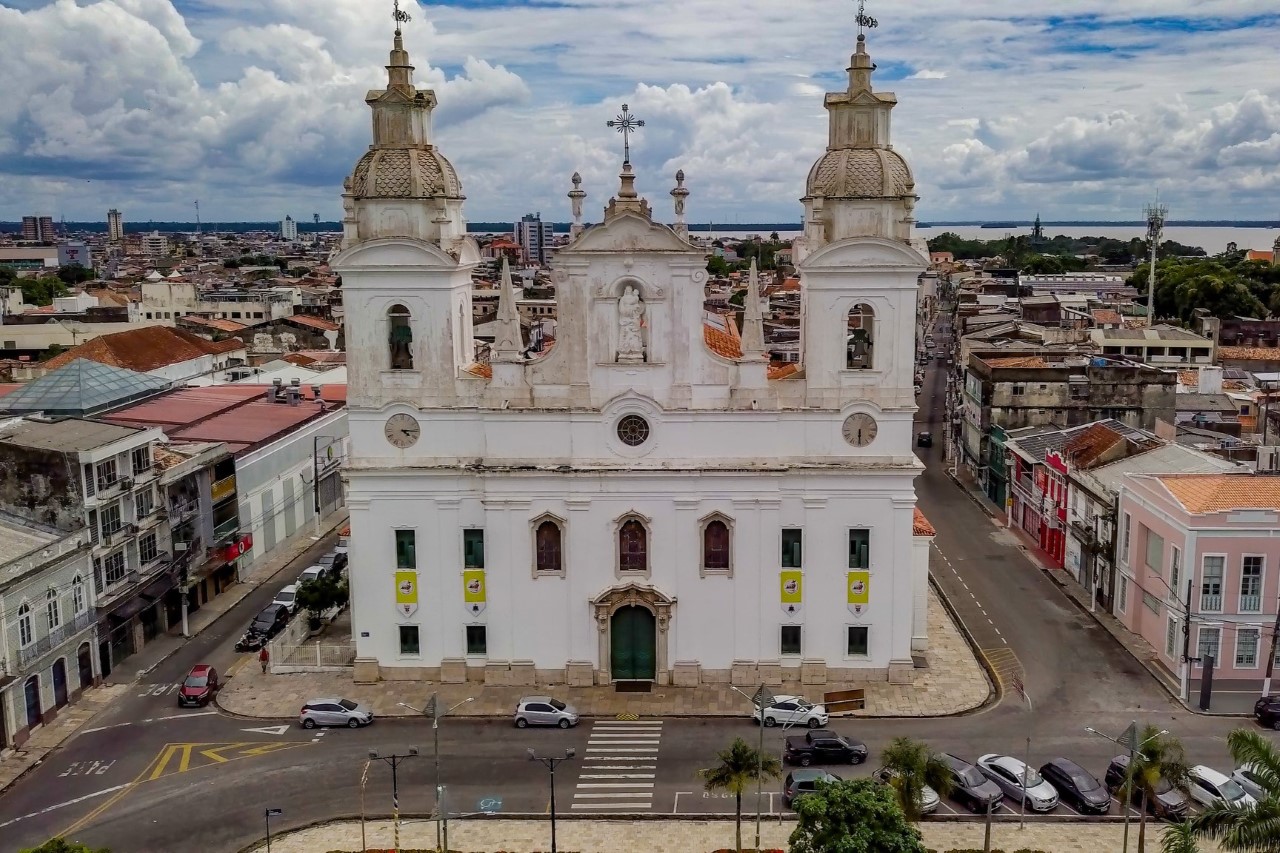Security at COP30 will follow Brasil’s model for major international events
Security forces at COP30 will use the same model employed during the World Cup, the Olympics, and the G20 Summit. Agents will protect world leaders and the people of Belém

By Leandro Molina / COP30 Brasil
Expectations are high for the conference, with thousands of representatives of nearly every country in the world expected to attend. Scheduled for November in Belém (Pará), COP30 is a top priority for the Brazilian government, especially regarding security.
According to Pedro Pontual, the deputy executive secretary of the Office of the Chief of Staff (Casa Civil) at the Presidency of the Republic, security preparations are progressing based on an integrated model involving federal, state, and municipal agencies. Pedro Pontual states that Brasil has extensive experience organizing major international events, such as the 2014 World Cup, the 2016 Olympic Games, the 2024 G20 Brasil Summit, and the current BRICS Brasil Summit. "We are working using the same security model in its integrated format," he explained.
Preparations to ensure the security of COP30 began in 2024 after Brasil assumed the conference presidency. Since then, ten planning workshops have been held, led by the Executive Secretariat of the Office of the Chief of Staff and staffed by all public security forces and national defense entities.
Agencies participating in this coordination include the Federal Police (Polícia Federal/PF), Federal Highway Police (Polícia Rodoviária Federal/PRF), Ministry of Defense (Ministério da Defesa/MD), Institutional Security Office (Gabinete de Segurança Institucional/GSI) of the Presidency, Office of the Chief of Staff (Casa Civil), Ministry of Foreign Affairs (Ministério das Relações Exteriores/MRE), and the Ministry of Management and Innovation (Ministério da Gestão e Inovação/MGI), as well as the Public Security and Social Defense Secretariat of Pará and the Municipal Civil Guard of Belém.
According to Pedro Pontual, the challenge is delineating all the activities necessary for safely executing the event and assigning responsibilities according to each agency’s legal competencies. “We included state and municipal agencies in this process according to their jurisdiction and the necessity of their involvement in this integration,” he said.
To this end, Brasil is developing an Integrated Strategic Security Plan to serve as a reference for all actions. Compared to recent presidencies held by Brasil, COP30 will be extended, with activities held over several days. According to Pedro Pontual, this resembles the Olympics model.

This creates additional challenges, especially since Belém lacks experience hosting international events of this magnitude. Additionally, COP30 differs from events like the G20 or the Olympic Games in that it involves direct UN participation in security. "We have an extra variable to consider when planning. The UN is actively involved, including in security," Pedro Pontual explained.
This involvement means that parts of the conference venue, the Blue Zone, will be under direct UN management, with access control and security management handled by the international organization. Other areas will remain under the responsibility of Brazilian authorities.
Regarding security agents, Pedro Pontual noted the similarity to the recent Brazilian presidency of the G20, which mobilized around 20,000 agents. "It is unlikely to be fewer than that," he said, emphasizing that the number of security agents will depend on the conference's needs and stages. "There may be peaks and valleys in the number of security professionals depending on the event's phase," he pointed out.
Challenges addressed
The geography and natural features of Belém present unique challenges for security planning. Rivers and streams cross the city, and much of its urban activity involves waterborne transportation. In this context, the Armed Forces are involved in security and clearly defined responsibilities. For instance, COP30 will draw upon the Amazônia Military Command (Comando Militar da Amazônia), which is familiar with the region. Additionally, and the Navy will support riverine security. Similar to Rio de Janeiro, where the Navy secured the G20 Summit, Belém’s waterways are incorporated into the security plan.
Regarding the impact on urban mobility, Pedro Pontual acknowledges that events of this magnitude inevitably affect the city’s dynamics. "It will be no different in Belém for COP30. That’s why our integrated security plan discussions feature traffic control, planning, and urban mobility agencies,” he explained. Agencies such as city hall, the state government, and the Department of Transportation (Detran) are participating in the planning to ensure the city continues to function despite temporary adjustments.
The deputy executive secretary emphasizes the high level of professionalism of the Brazilian security forces involved in the planning. “It’s important to highlight the professionalism and competence of Brazilian agencies, both federal and local. It’s encouraging to count on extremely well-prepared professionals for an operation of this nature,” he said.
Integrated planning and technology
Nilza de Oliveira, director of operations, is responsible for overseeing all COP30 operations. She explains the challenges and progress in preparing for security, mobility, and infrastructure. She leads a team that coordinates everything from the workforce to solid waste management. Director Nilza de Oliveira emphasizes the complexity of ensuring the simultaneous operation of all essential services.
She stressed that all the security forces are taking part in drawing up the responsibility matrix, which has already been completed. The current stage consists of transforming the strategic planning into tactical-operational plans, with workshops to integrate the different forces and avoid coordination failures. "There's no point in having a tactical defense plan if the teams do not talk to each other. Everyone needs to have the same information and be prepared for the same phenomenon," she says.
Mobility and the event's impact on Belém's daily life have also been studied. The city, which already faces structural challenges in urban mobility, will have a specific plan for COP30 developed by the Special Secretariat for COP30 (SECOP) in the Office of the Chief of Staff. “The plan includes exclusive bus hubs for conference delegates to reduce pressure on public transportation. Delegates will be provided with guaranteed mobility with dedicated buses so as not to further strain the local system,” the operations director explained.
While some roads will be closed, especially during the leader arrivals, the plan is to maintain the city’s basic operations. "The city cannot stop. We need all establishments to continue operating," director Nilza de Oliveira said. Another logistical challenge involves the two hotel ships that will host some of the delegations. Transportation between the ships and event venues must be ensured. "All of this is being planned and will be monitored to ensure adequate mobility for participants," she added.
Regarding the legacy that COP30 security may leave for Belém, she explained that no permanent equipment acquisitions are expected because current resources and operational funding are the basis for planning. However, she believes the greatest legacy will be the collective learning and technical capacity developed.

Another crucial security consideration is coordinating with the security teams of state leaders, who typically have their own security arrangements. "This relationship is equally vital, and we hope it will be as easy as it was during the G20 and BRICS events. Effective coordination is imperative to mitigate potential challenges,” director Nilza de Oliveira noted, adding that recent experiences will help to prepare COP30.
According to Daniel Joseph Lerner, the coordinator of security and health for COP30, the operation seeks to protect world leaders, United Nations representatives, and ensure the safety of the thousands of delegates involved in climate negotiations, as well as the people of Belém. "It's a comprehensive ensemble of actors ensuring security not only in the City Park, the event venue, but also across the city. This guarantees that everything will run smoothly throughout November," he stated.
The operation includes protecting tourist areas, transporting authorities, and monitoring strategic zones, such as the Guamá River, which borders Belém and is vital for the event’s logistics and security. The Navy and other federal agencies will be involved in the fluvial aspect of COP30 security, which is structured around four pillars: authority protection, event security, critical infrastructure protection, and cybersecurity.
Director Daniel Lerner stresses the importance of cybersecurity planning. All actions, forecasts, and required technologies are being determined. Cybersecurity is seen as a key element in planning the entire event. "Cybersecurity is essential. The COP is an event with its own protected network, safeguarded by international best practices, including passwords, firewalls, and other mechanisms. The UN defines the technical parameters, but Brasil has highly skilled technicians and compatible equipment. We have IT solutions deployed to ensure the protection of networks and systems during the event," he stated.
Guaranteeing freedom in a democratic and welcoming atmosphere
Another concern is balancing the protection of participants and the city with ensuring freedom of expression. Director Daniel Lerner emphasized that Belém will be a stage for more active participation from civil society. He explained that one of the main security challenges will be ensuring that demonstrations proceed freely, peacefully, and harmoniously without disrupting city operations or endangering participants.
Director Daniel Lerner clarifies that the display of armed forces, including tanks or soldiers in the streets, is not planned. "There are important aspects involving the armed forces, but our priority is to avoid the appearance of a state of exception. Instead, we aim to project an environment of hospitality and freedom, which is the COP30 vision and one of the reasons Belém was chosen," director Daniel Lerner says.
English Version: Trad. Bárbara Menezes
Proofreading by Enrique Villamil
